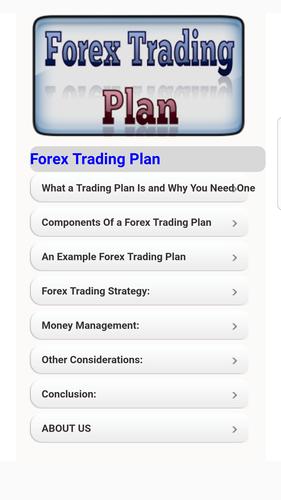
If you see futures it is a sign that the index is heading lower. Unexpected weather events can cause major shipping lanes to close before the stock markets opens. This could also be due to a pandemic Coronavirus. We'll be discussing some of the advantages of selling futures contracts in this article. Keep reading to find out more. In the meantime, you may also want to learn about Expiration of futures contracts and why you might want to sell a futures contract.
Futures on the S&P 500 are falling
S&P futures have fallen, but what's the problem? Traders worry that futures could fall too, and this can lead to a significant loss for the S&P. However, it's worth noting that S&P futures trade almost twenty-four hours a day - making them accessible to investors around the world most of the week. Even if futures markets were down, stock prices would still have dropped before they opened.
As of 5 a.m. ET, S&P futures are down nearly 1%. The market has been in pressure this morning due to investor worries and fears about the Chinese economic. The S&P 500 may have its worst first quarter in over 40 years. But this does not mean that the correction has ended. Futures prices are likely will fall as listed companies continue to be under pressure.

Coronavirus pandemics are to blame
If you are worried about our future, then it is time for you to think about how coronaviruses might play a role in our downfall. Since the 1990s, researchers, including Wendy Barclay (virologist at Imperial College London), have been following the evolution of coronaviruses. They discovered that the virus was diversifying very early in the pandemic. SARS CoV-2 picked up two new mutations every month, which is one change per month. These early changes didn't affect the virus's behavior and did not show the influence of natural Selection.
The global coronavirus outbreak has already claimed millions of lives, including 1,000,000 Americans and a record 4 million Chinese. Covid-19 is a new vaccine that allows those who have died from the disease's effects to keep their memories. However, the virus caused a rise in global stock markets and dragged down U.S. dollar and other highly risky currencies.
Expiration futures contracts
An investor can take advantage of a futures contract that will expire before the underlying asset goes up or down. Futures contracts come with a set expiration date. They are possible to be settled in either cash or physical delivery. Contract specifications will indicate the expiration date. The contract specifications are set by the trade organizer. This expiration date is generally the third Friday in the month that the contract was entered into.
Futures can be volatile but they tend to become more stable with each passing expiration date. It's important to know which futures are safe for your portfolio and which should not be traded. Futures are used by some investors as a way to see which direction a stock indice is heading. The major difference between futures and stocks is that futures track stock prices 24 hours a day, whereas stocks trade only during exchange trading hours.

Selling futures contracts has its benefits
Futures contracts can be sold when future prices drop. This provides you with a better hedge to your portfolio. Futures contracts are easier to sell than short-selling stocks. These contracts are based at the current spot price of the commodity and adjusted to reflect the cost of physically keeping it until expiration. They offer greater diversification, lower trading costs and are safer investments than short-selling stock options.
Futures contracts can be sold for many reasons. These futures contracts can be used to manage risk, provide liquidity, or offer financial rewards. However, it is important to note that not all of these situations are predictable. A farmer who sells corn will need an offsetting contract. A natural disaster may destroy their crop. If this happens, the corn prices will likely go up. Without the corn crop, the farmer would incur a significant loss. Speculators can't foresee all the factors that could affect supply and demande.
FAQ
What is a mutual fund?
Mutual funds consist of pools of money investing in securities. They provide diversification so that all types of investments are represented in the pool. This helps reduce risk.
Professional managers oversee the investment decisions of mutual funds. Some funds let investors manage their portfolios.
Mutual funds are more popular than individual stocks, as they are simpler to understand and have lower risk.
What role does the Securities and Exchange Commission play?
SEC regulates the securities exchanges and broker-dealers as well as investment companies involved in the distribution securities. It enforces federal securities laws.
How do I choose a good investment company?
A good investment manager will offer competitive fees, top-quality management and a diverse portfolio. Fees vary depending on what security you have in your account. Some companies have no charges for holding cash. Others charge a flat fee each year, regardless how much you deposit. Others charge a percentage on your total assets.
You also need to know their performance history. Companies with poor performance records might not be right for you. Avoid low net asset value and volatile NAV companies.
Finally, it is important to review their investment philosophy. An investment company should be willing to take risks in order to achieve higher returns. If they're unwilling to take these risks, they might not be capable of meeting your expectations.
What is a REIT and what are its benefits?
An REIT (real estate investment trust) is an entity that has income-producing properties, such as apartments, shopping centers, office building, hotels, and industrial parks. These publicly traded companies pay dividends rather than paying corporate taxes.
They are similar to corporations, except that they don't own goods or property.
What is the difference in the stock and securities markets?
The securities market is the whole group of companies that are listed on any exchange for trading shares. This includes options, stocks, futures contracts and other financial instruments. Stock markets are typically divided into primary and secondary categories. Stock markets are divided into two categories: primary and secondary. Secondary stock exchanges are smaller ones where investors can trade privately. These include OTC Bulletin Board, Pink Sheets and Nasdaq SmallCap market.
Stock markets are important as they allow people to trade shares of businesses and buy or sell them. The value of shares is determined by their trading price. New shares are issued to the public when a company goes public. Investors who purchase these newly issued shares receive dividends. Dividends are payments made to shareholders by a corporation.
Stock markets are not only a place to buy and sell, but also serve as a tool of corporate governance. Shareholders elect boards of directors that oversee management. They ensure managers adhere to ethical business practices. The government can replace a board that fails to fulfill this role if it is not performing.
Who can trade on the stock exchange?
Everyone. All people are not equal in this universe. Some people are more skilled and knowledgeable than others. They should be rewarded.
Other factors also play a role in whether or not someone is successful at trading stocks. If you don't understand financial reports, you won’t be able take any decisions.
Learn how to read these reports. Each number must be understood. And you must be able to interpret the numbers correctly.
Doing this will help you spot patterns and trends in the data. This will enable you to make informed decisions about when to purchase and sell shares.
This could lead to you becoming wealthy if you're fortunate enough.
How does the stock markets work?
By buying shares of stock, you're purchasing ownership rights in a part of the company. The company has some rights that a shareholder can exercise. He/she can vote on major policies and resolutions. He/she can demand compensation for damages caused by the company. And he/she can sue the company for breach of contract.
A company cannot issue more shares than its total assets minus liabilities. It's called 'capital adequacy.'
A company that has a high capital ratio is considered safe. Low ratios can be risky investments.
What are some of the benefits of investing with a mutual-fund?
-
Low cost – buying shares directly from companies is costly. Buying shares through a mutual fund is cheaper.
-
Diversification – Most mutual funds are made up of a number of securities. The value of one security type will drop, while the value of others will rise.
-
Professional management - professional mangers ensure that the fund only holds securities that are compatible with its objectives.
-
Liquidity is a mutual fund that gives you quick access to cash. You can withdraw money whenever you like.
-
Tax efficiency – mutual funds are tax efficient. Because mutual funds are tax efficient, you don’t have to worry much about capital gains or loss until you decide to sell your shares.
-
Purchase and sale of shares come with no transaction charges or commissions.
-
Mutual funds are easy to use. You will need a bank accounts and some cash.
-
Flexibility: You can easily change your holdings without incurring additional charges.
-
Access to information: You can see what's happening in the fund and its performance.
-
Investment advice - you can ask questions and get answers from the fund manager.
-
Security - Know exactly what security you have.
-
You have control - you can influence the fund's investment decisions.
-
Portfolio tracking: You can track your portfolio's performance over time.
-
Easy withdrawal - You can withdraw money from the fund quickly.
What are the disadvantages of investing with mutual funds?
-
Limited investment opportunities - mutual funds may not offer all investment opportunities.
-
High expense ratio. The expenses associated with owning mutual fund shares include brokerage fees, administrative costs, and operating charges. These expenses can impact your return.
-
Lack of liquidity - many mutual fund do not accept deposits. They must be purchased with cash. This limits your investment options.
-
Poor customer service. There is no one point that customers can contact to report problems with mutual funds. Instead, you must deal with the fund's salespeople, brokers, and administrators.
-
Risky - if the fund becomes insolvent, you could lose everything.
Statistics
- For instance, an individual or entity that owns 100,000 shares of a company with one million outstanding shares would have a 10% ownership stake. (investopedia.com)
- Ratchet down that 10% if you don't yet have a healthy emergency fund and 10% to 15% of your income funneled into a retirement savings account. (nerdwallet.com)
- Individuals with very limited financial experience are either terrified by horror stories of average investors losing 50% of their portfolio value or are beguiled by "hot tips" that bear the promise of huge rewards but seldom pay off. (investopedia.com)
- "If all of your money's in one stock, you could potentially lose 50% of it overnight," Moore says. (nerdwallet.com)
External Links
How To
What are the best ways to invest in bonds?
You will need to purchase a bond investment fund. You will be paid back at regular intervals despite low interest rates. These interest rates are low, but you can make money with them over time.
There are many options for investing in bonds.
-
Directly buying individual bonds.
-
Buy shares of a bond funds
-
Investing via a broker/bank
-
Investing through a financial institution
-
Investing in a pension.
-
Directly invest with a stockbroker
-
Investing in a mutual-fund.
-
Investing through a unit-trust
-
Investing via a life policy
-
Investing in a private capital fund
-
Investing in an index-linked investment fund
-
Investing in a hedge-fund.